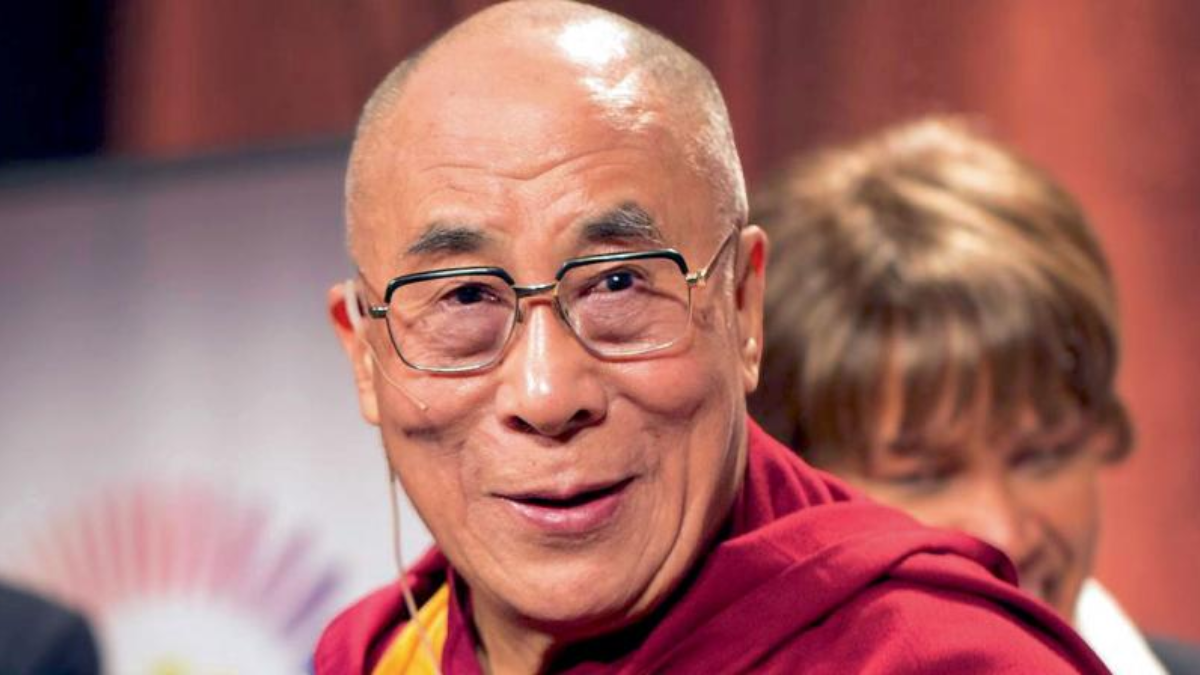
March 11 Tuesday – The Dalai Lama has affirmed that his successor will be born outside China, intensifying the long-standing dispute over Tibet’s spiritual leadership. This revelation is made in his new book, Voice for the Voiceless, which is set for release on Tuesday.
Tibetans worldwide have expressed their desire for the institution of the Dalai Lama to continue beyond the 89-year-old leader’s lifetime, a notion he acknowledges in the book. Previously, he had suggested that the line of Dalai Lamas might end with him. However, this is the first time he has explicitly stated that his successor would be born in the “free world,” which he defines as outside China. Earlier, he had only mentioned the possibility of reincarnation outside Tibet, potentially in India, where he has lived in exile since 1959.
“Since the purpose of a reincarnation is to carry on the work of the predecessor, the new Dalai Lama will be born in the free world so that the traditional mission of the Dalai Lama – that is, to be the voice for universal compassion, the spiritual leader of Tibetan Buddhism, and the symbol of Tibet embodying the aspirations of the Tibetan people – will continue,” he writes.
Historical Context and China’s Response
Tenzin Gyatso, the 14th Dalai Lama, fled to India at the age of 23, along with thousands of Tibetans, following a failed uprising against the rule of Mao Zedong’s Communist government in 1959. Since then, Beijing has insisted on its authority to appoint his successor, but the Dalai Lama has firmly rejected the notion, asserting that any successor chosen by China “would not be respected.”
China has long viewed the Dalai Lama as a separatist and has sought to maintain control over Tibet and its religious leadership. When asked about the book at a press briefing on Monday, a spokesperson for China’s foreign ministry stated, “The Dalai Lama is a political exile who is engaged in anti-China separatist activities under the cloak of religion. On the Tibet issue, China’s position is consistent and clear. What the Dalai Lama says and does cannot change the objective fact of Tibet’s prosperity and development.”
Ongoing Tensions and International Support
Last month, Beijing expressed hope that the Dalai Lama would “return to the right path,” offering potential discussions about his future on the condition that he acknowledges Tibet and Taiwan as inseparable parts of China. However, the Tibetan parliament-in-exile, based in Dharamshala, India, has rejected this proposal.
Prominent figures who support the Dalai Lama and the Tibetan cause include Hollywood actor Richard Gere and former U.S. House Speaker Nancy Pelosi. Concerns about the Dalai Lama’s health have also grown, particularly following his knee surgery last year. Despite this, he remains optimistic about his longevity, telling Reuters in December that he might live to be 110.
Reaffirming the Dalai Lama Lineage
In Voice for the Voiceless, the Dalai Lama reveals that for over a decade, he has received numerous petitions from a broad spectrum of Tibetan people, including senior monks and Tibetans inside and outside Tibet, “uniformly asking me to ensure that the Dalai Lama lineage be continued.”
According to Tibetan Buddhist tradition, the soul of a senior monk is reincarnated in the body of a child after their death. The current Dalai Lama was identified as the reincarnation of his predecessor at the age of two.
The book, which the Dalai Lama describes as an account of his dealings with Chinese leaders over the past seven decades, is being published by William Morrow in the U.S. and HarperNonFiction in Britain, with HarperCollins set to release it in India and other countries.
Future of Tibet’s Struggle
With his 90th birthday approaching in July, the Dalai Lama has pledged to release further details about his succession. In the book, he writes that his homeland remains “in the grip of repressive Communist Chinese rule” and insists that the Tibetan people’s struggle for freedom will persist “no matter what,” even after his passing.
“The right of the Tibetan people to be the custodians of their own homeland cannot be indefinitely denied, nor can their aspiration for freedom be crushed forever through oppression,” he writes. “One clear lesson we know from history is this: if you keep people permanently unhappy, you cannot have a stable society.”
Despite his unwavering commitment to the Tibetan cause, he concedes that returning to Tibet within his lifetime appears “increasingly unlikely.” Nonetheless, he expresses confidence in the Tibetan government and parliament-in-exile to continue advocating for the rights and autonomy of Tibetans. Keep Reading Questiqa.com and Get more News Headlines On Our Social Platforms And Do Follow.




